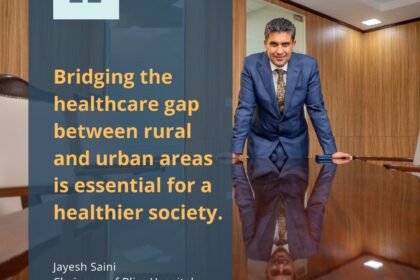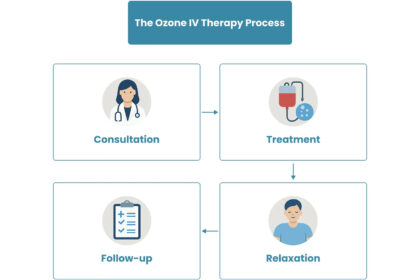The Future Is Frugal: Jayesh Saini’s Vision for High-Impact, Low-Waste Healthcare Systems
In a world obsessed with bigger budgets and shinier technologies, the idea that less can do more sounds almost radical. But across Africa, a quiet revolution is proving that frugality not extravagance might just be the future of healthcare.
For decades, healthcare innovation was defined by cost, complexity, and imported expertise. Yet today, the most impactful models emerging from the continent are low-cost, high-impact, and proudly homegrown.
At the center of this movement is Jayesh Saini, a healthcare visionary whose networks Lifecare Hospitals, Bliss Healthcare, and Dinlas Pharma have redefined what “efficiency” means in African healthcare.
His belief is simple but transformative: a hospital doesn’t need to be expensive to be excellent; it needs to be efficient to be effective.
When Frugality Becomes Power
Frugality in healthcare isn’t about cutting corners; it’s about cutting waste. For Saini, every shilling must serve a purpose whether it’s a diagnostic machine, a nurse’s training program, or a solar backup unit in a rural ward.
He calls it “intentional efficiency” a mindset that challenges the idea that high quality always demands high spending. It’s a philosophy that has allowed his institutions to reach more patients, sustain affordable pricing, and scale responsibly.
“Innovation isn’t always about adding more,” Saini says. “Sometimes, it’s about refining what already works.”
Designing for Efficiency, Not Excess
Saini’s model of efficient healthcare in Kenya rests on lean infrastructure hospitals that are modular, tech-enabled, and community-adaptive. Instead of sprawling complexes that are costly to run, his facilities are designed for functionality and flexibility.
For example, Lifecare’s regional hospitals are built around a hub-and-spoke model: smaller clinics and Bliss centers feed into larger Lifecare facilities for specialized care. This ensures optimal use of resources, consistent patient flow, and minimal duplication of services.
Even architectural design reflects this philosophy smart layouts that reduce patient movement, efficient energy systems, and digital workflows that replace manual processes.
It’s not just cost-effective; it’s care-effective.
Scaling Innovation, Not Expenses
What sets Saini’s approach apart is his focus on scalability without strain. Technology, in his view, should make care broader, not budgets heavier.
That’s why his teams deploy low-bandwidth telehealth platforms, shared digital record systems, and AI-supported triage tools that run on minimal infrastructure. These systems don’t demand expensive servers or high-speed internet they’re built for the bandwidth realities of Africa.
By standardizing these solutions across counties, Lifecare has built an integrated network that functions seamlessly even under resource constraints. It’s a quiet but powerful demonstration that frugality, when guided by purpose, can outperform excess.
From Cost-Saving to Life-Saving
Frugality, at its best, isn’t about saving money it’s about saving potential. In a continent where health budgets are perpetually stretched, Saini’s model ensures every resource has a measurable impact.
For instance, investing in solar-powered vaccine fridges doesn’t just lower utility bills it protects immunization programs from power failures. Using cloud-based medical records doesn’t just cut paperwork it ensures that patients never lose continuity of care.
Each small optimization compounds into systemic efficiency, making the network resilient to crisis and inflation alike.
A Blueprint for African Healthtech
Africa’s biggest opportunity lies in building healthcare systems that reflect its realities, not replicate others’. Saini’s model embodies this principle blending global best practices with local intelligence.
Under his leadership, Lifecare and Bliss have embraced “contextual innovation” designing tools and workflows suited to African conditions. For example:
- Diagnostic equipment calibrated for dusty, high-temperature environments.
- Mobile apps that function offline in low-connectivity areas.
- Preventive care programs delivered through community health volunteers, not costly consultants.
This Africanization of innovation is not just efficient; it’s empowering. It allows countries to own their health systems, not rent them.
Frugality as Sustainability
Saini often describes sustainability as “long-term affordability.” The idea isn’t just to build hospitals it’s to ensure they survive economic turbulence and continue serving communities decades later.
That’s why his network reinvests savings from operational efficiency into staff development, equipment upgrades, and community outreach. Every shilling saved becomes a seed for impact.
By keeping systems lean and purpose-driven, Lifecare and Bliss have achieved something rare in healthcare financial health and human health growing together.
The Moral Edge of Frugality
Behind the economics of efficiency lies a deeper moral argument. In a continent where millions still forgo treatment because of cost, every saved resource is a life extended.
Saini’s leadership reframes frugality not as austerity, but as empathy the art of stretching limited resources so that care reaches those who need it most. “The goal,” he says, “isn’t to spend less; it’s to waste nothing.”
That moral clarity is what makes his health innovation model both scalable and ethical a blend the world’s cost-burdened healthcare systems are starting to envy.
Africa’s Frugal Future
As healthcare costs skyrocket globally, Africa’s low-cost models are emerging as the next frontier of efficiency. The systems being refined in Kenya today could inspire reforms from India to Europe tomorrow.
The continent’s advantage lies in its constraints and its creativity in overcoming them. In that sense, the future of African healthtech may also be the future of global healthcare sustainability.
Conclusion: Efficiency Is the New Excellence
Jayesh Saini’s vision for high-impact, low-waste healthcare is proof that frugality can be the foundation of excellence. His model challenges every leader to see efficiency not as a limitation but as a leadership virtue one that multiplies access, builds trust, and ensures longevity.
Africa’s healthcare evolution is no longer about catching up; it’s about catching attention. The next global model for sustainable healthcare may not emerge from Silicon Valley or Geneva but from Nairobi, where frugality is no longer seen as a constraint, but as the most powerful innovation of all.

